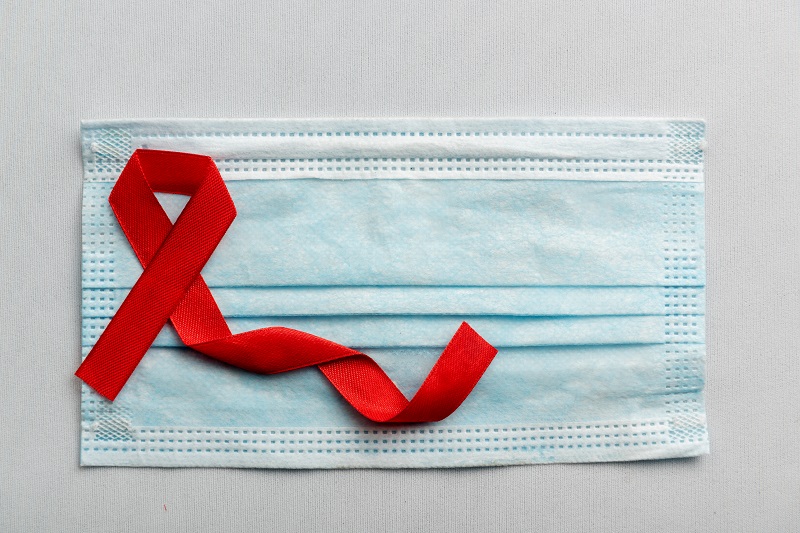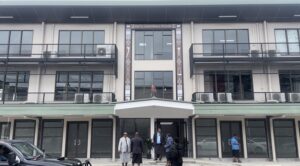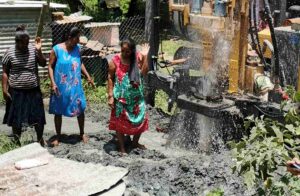Fiji recorded 151 new cases of HIV in 2021, the highest since 1989, with most cases reported amongst young people and unsafe sex practises identified as the main mode of transmission.
In a joint statement with the UNAIDS Fiji, the Ministry of Health stated that most infections were from late case presentations of HIV during the second wave of COVID-19 in Fiji, fearing that the numbers indicate the likelihood of many unknown cases in the community.
There have also been 25 HIV-related deaths including one paediatric death, according to statistics shared at the quarterly HIV board meeting chaired by Fiji’s Permanent Secretary for Health and Medical Services Dr James Fong and attended by other members from government ministries, development partners, academia, civil society organizations and HIV board patron Speaker of Parliament and UNAIDS Goodwill Ratu Epeli Nailatikau.
“Since 1989, there has been a cumulative number of 1417 cases of HIV reported in Fiji. The prevalence of HIV has risen to 0.16 from 0.14 in 2020. From the 151 reported HIV infections, 82% were from the ages of 20-49, 6% adolescents and 6% are less than 10 years of age reflecting 9 mother to child transmissions,” the statement read.
Majority of the infections were recorded from the Central/Eastern Division.
“36% was from the Western division and 12% from the Northern division. The Western and Northern divisions have reported an increase in cases in comparison to 2020.
“The new infection shows a shifting trend in the gender profile with 52% of cases among men, 47% female and 1% transgender.
“The new infection case summaries reflect that most of the diagnosis are in the younger population bracket, with the main mode of transmission being through unsafe sex practices. Some of the newly diagnosed cases have indicated to be injecting drug users and are sharing needles with others, which is another emerging mode of HIV transmission.”
To escalate efforts to counter the rising numbers, Dr Fong as the chair of the HIV Board has appointed a working group consisting of senior HIV medical staff and development partners such as UNAIDS.
“These escalated efforts are to cover all focus areas starting from prevention, data management, testing, treatment, and the delivery of care. The Ministry acknowledges the importance of community partners and will work jointly to ensure that at-risk populations receive the services they need.”
UNAIDS Country Director for Fiji, Renata Ram said: “There has been a continuous trend of an increase of reported infections, matched with an estimated continuous increase of new infections by over 116% since 2010, and this is now becoming more visible and worrying. UNAIDS recognizes that COVID has impacted negatively on Fiji’s HIV programmes and as the technical partner on HIV/AIDS, we will continue to work closely with the Ministry of Health and Medical Services to provide the guidance, resource mobilization and support needed to meet the 2025 HIV targets.
“These targets include the availability of combination HIV treatment for all, ending paediatric AIDS and eliminating vertical transmission, gender equality and empowerment of girls and women- this includes that 95% of women & girls have their HIV & sexual reproductive care services met including antenatal care information & counselling, community leadership through community-led programming, elimination of stigma and discrimination, universal health coverage and resources provided to deliver continually sustainable HIV services. These are ambitious targets and the ministry’s commitment to escalating these efforts is the step in the right direction to meeting the targets needed to put Fiji on track to end AIDS as a public health threat by 2030.”
UNAIDS Fiji and the ministry are encouraging people to know their HIV status and get tested, as life-long, life-saving HIV treatment is available at no cost to every Fijian.
“Young people especially are encouraged to visit their nearest health centres, or Sexual Reproductive Health Clinics in Suva, Lautoka and Labasa to get tested with full confidentiality and be counselled on prevention options that best suit them.”

Photo: Awareness ribbon photo created by h9images – www.freepik.com









